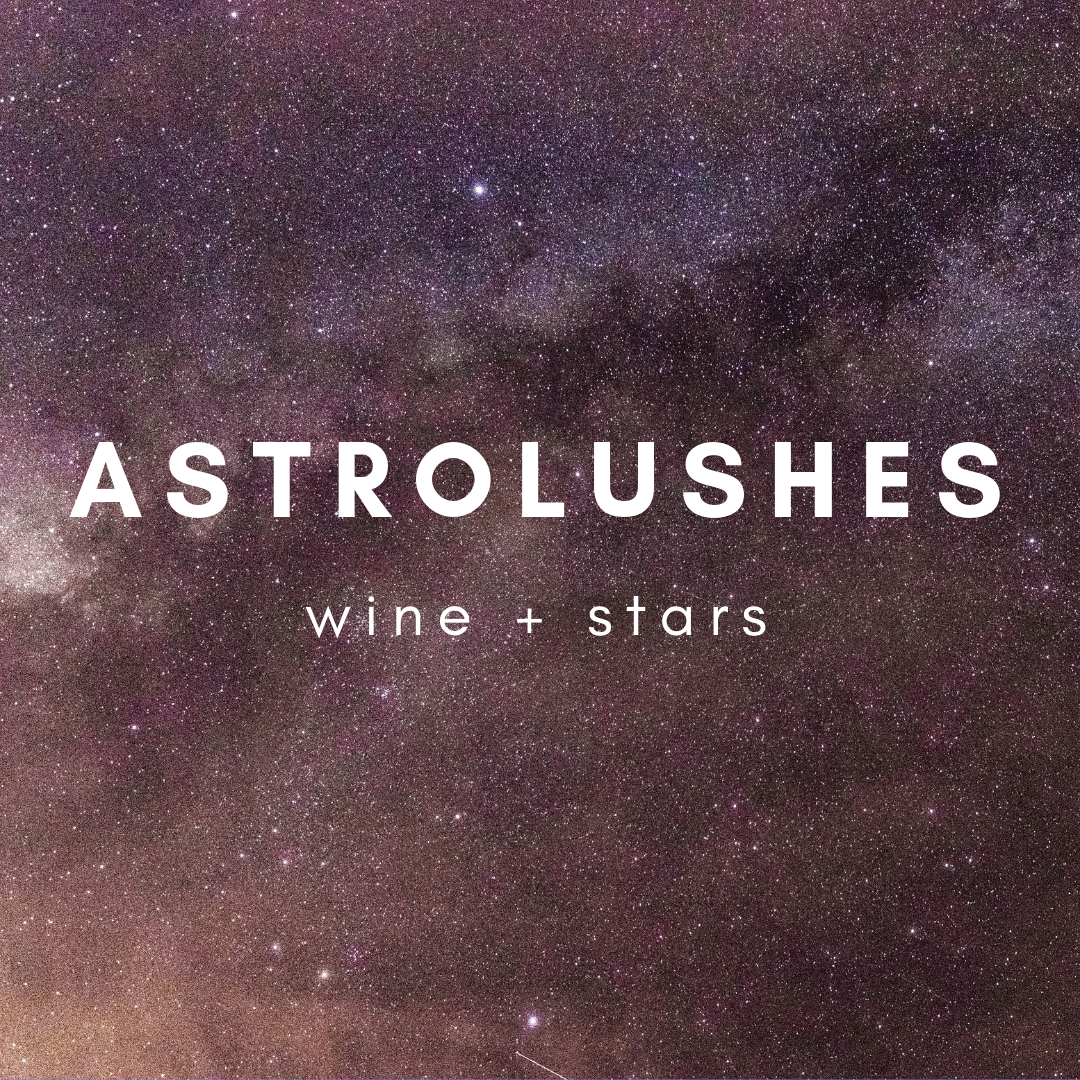Terence Degnan is the author of Still Something Rattles (Sock Monkey Press, 2016) and The Small Plot Beside the Ventriloquist’s Grave (Sock Monkey Press, 2012). He's the Founder & Producer of "How to Build a Fire", a monthly storytelling series now in its 5th year, at Open Source Gallery. In addition, Terence also co-hosts and co-curates "Poets Settlement", a monthly reading series now in its 4th season. His poems have appeared in numerous journals and anthologies. His two spoken word albums, "BC" & "Calling Shotgun" can be found on iTunes and Spotify.
Read MoreIf You're a Cancer, Listen to This Playlist
Joanna C. Valente is a human who lives in Brooklyn, New York. They are the author of Sirs & Madams, The Gods Are Dead, Marys of the Sea, Sexting Ghosts, Xenos, No(body) (forthcoming, Madhouse Press, 2019), and is the editor of A Shadow Map: Writing by Survivors of Sexual Assault. They received their MFA in writing at Sarah Lawrence College. Joanna is the founder of Yes Poetry and the senior managing editor for Luna Luna Magazine. Some of their writing has appeared in The Rumpus, Them, Brooklyn Magazine, BUST, and elsewhere. Joanna also leads workshops at Brooklyn Poets. joannavalente.com / Twitter: @joannasaid / IG: joannacvalente / FB: joannacvalente
The Playlist All Aries Will Love
Joanna C. Valente is a human who lives in Brooklyn, New York. They are the author of Sirs & Madams, The Gods Are Dead, Marys of the Sea, Sexting Ghosts, Xenos, No(body) (forthcoming, Madhouse Press, 2019), and is the editor of A Shadow Map: Writing by Survivors of Sexual Assault. They received their MFA in writing at Sarah Lawrence College. Joanna is the founder of Yes Poetry and the senior managing editor for Luna Luna Magazine. Some of their writing has appeared in The Rumpus, Them, Brooklyn Magazine, BUST, and elsewhere. Joanna also leads workshops at Brooklyn Poets. joannavalente.com / Twitter: @joannasaid / IG: joannacvalente / FB: joannacvalente
This Playlist Is For All Taurus Babes
The Ultimate Playlist for Geminis
Joanna C. Valente is a human who lives in Brooklyn, New York. They are the author of Sirs & Madams, The Gods Are Dead, Marys of the Sea, Sexting Ghosts, Xenos, No(body) (forthcoming, Madhouse Press, 2019), and is the editor of A Shadow Map: Writing by Survivors of Sexual Assault. They received their MFA in writing at Sarah Lawrence College. Joanna is the founder of Yes Poetry and the senior managing editor for Luna Luna Magazine. Some of their writing has appeared in The Rumpus, Them, Brooklyn Magazine, BUST, and elsewhere. Joanna also leads workshops at Brooklyn Poets. joannavalente.com / Twitter: @joannasaid / IG: joannacvalente / FB: joannacvalente
Flickr
Listen to these Rare Doris Day Duets (& Some of Her Best Hits)
Joanna C. Valente is a human who lives in Brooklyn, New York. They are the author of Sirs & Madams, The Gods Are Dead, Marys of the Sea, Sexting Ghosts, Xenos, No(body) (forthcoming, Madhouse Press, 2019), and is the editor of A Shadow Map: Writing by Survivors of Sexual Assault. They received their MFA in writing at Sarah Lawrence College. Joanna is the founder of Yes Poetry and the senior managing editor for Luna Luna Magazine. Some of their writing has appeared in The Rumpus, Them, Brooklyn Magazine, BUST, and elsewhere. Joanna also leads workshops at Brooklyn Poets. joannavalente.com / Twitter: @joannasaid / IG: joannacvalente / FB: joannacvalente
A Playlist Just for Virgos
Joanna C. Valente is a human who lives in Brooklyn, New York. They are the author of Sirs & Madams, The Gods Are Dead, Marys of the Sea, Sexting Ghosts, Xenos, No(body) (forthcoming, Madhouse Press, 2019), and is the editor of A Shadow Map: Writing by Survivors of Sexual Assault. They received their MFA in writing at Sarah Lawrence College. Joanna is the founder of Yes Poetry and the senior managing editor for Luna Luna Magazine. Some of their writing has appeared in The Rumpus, Them, Brooklyn Magazine, BUST, and elsewhere. Joanna also leads workshops at Brooklyn Poets. joannavalente.com / Twitter: @joannasaid / IG: joannacvalente / FB: joannacvalente
Read MoreA Playlist for the Sagittarius in Your Life
A playlist just for you, dear mythical creature:
Read MoreA Playlist Perfect for Scorpios
Water babies, this is for you:
Read MoreThis Sun Playlist Is Everything You Need
AstroLushes: A New Podcast for Astrology Lovers Everywhere
ASTROLUSHES is a podcast at the intersection of astrology and literature, ritual, wellness, pop culture, creativity — and, of course, wine. Hosted by Luna Luna editor-in-chief Lisa Marie Basile and contributor Andi Talarico (both water signs!), you can expect guests, giveaways, book reviews, and more. You’ll have fun, but you’ll also go deep.
Episode 1 is an introductory episode during which the hosts chat about astrology’s impact in their own lives, plus they tackle the ideas of reductive astrology memes, pop culture (Rihanna lyrics!), folk magic, family lineage and trauma. They also a Rapid Fire Round of Guess That Sign (which sign is Poe?).
For now, you can listen to ASTROLUSHES on Anchor.Fm (there’s an app and also a website), but the podcast will soon be available on iTunes, Spotify, and everywhere else podcasts can be found. If you like what you hear, leave them a clap or star the show on Anchor. You can also listen below!
You can tweet them at @astrolushes.
Image via Tori Amos
Survival and Truth: How Tori Amos' Under The Pink Changed My Life
BY LISA MARIE BASILE
You don’t need my voice girl, you have your own
We were living in a poor neighborhood on the border of Elizabeth and Newark in New Jersey. I took packed “dollar cabs” to school when it was too cold to walk. We used food stamps at the little mercado downstairs, so I only went when my friends went home and I wouldn’t get caught.
On the third floor, our little apartment had two small bedrooms. Mom slept in the living room, on the couch. My mom was always either at the mall working, or out. She was working hard to overcome an addiction, and no matter how big and beautiful her heart was — the monster was winning. When she was out, I would, like a cat, keep an eye or ear open. Hearing the door knob late at night meant I could finally rest. She was home, and my body could wilt. I could sleep.
My brother and I slept on mattresses on the floor; his room got even less light than my did, so he would sit on the floor playing video games for hours in the dark. I could feel the house’s sadness all the way from my bedroom, but I didn’t have the language to manage it. The translation was lost in the heavy air, so I’d shut my bedroom door and ignore him, seven years younger than me. I’d blast my music and pretend to be somewhere else — in the woods, at the sea, wherever I could be free.
My room was my heaven. There was one long window, and that window looked out at a yard where I could watch a neighbor’s dog lounging or chasing butterflies in the summer. In the smallest of ways, everything felt fine. I could siphon that normalcy and try to press it into my chest like a lantern. I’d light it up when I couldn’t sleep.
A room is a sanctuary, an ecosystem, a confessional.For me, it was a place where I transformed from wound into girl.
Tori Amos happened to me during the summer of 1999. I’m not sure how it happened or who recommended her to me, but when I slipped the little Under the Pink disc into the CD player and sat on my bed, I grew a new organ. I was capable of metabolizing the trauma.
When my mother was out, out, out — wherever she was — or when she was in a screaming match with her violent boyfriend in the next room — I was etching Tori’s lyrics, sometimes over and over, into a little notebook.
I couldn’t possibly have understood all of it, as most of the language was either too adult or too cryptic or simply too Tori, but it spoke directly to the wound in a way that needed no translation or filter.
It was the line, You don’t need my voice girl you have your own, that I distinctly connected with. I wasn’t aware of what feminism really meant, not at all at that age or in that era, but I could feel the surge of electricity that came with being validated by a woman. I was suddenly her little cousin, and Tori was my cool older relative — all jeans and red hair exuding some strange, beautiful warmth. Or maybe she was my stand-in mother. My goddess. It was one of my first glimpses of what it could mean to look up to a woman who was full of space and light and hurt, like me, and who, through some digital osmosis could also heal and love me. Who tapped into the small dark pain and cradled it.
My mother was sick. My grandmother was dying. I had no one else I could turn to, but Tori found me in my bedroom and inhabited the space as nightlight, as cool sheets, as framed photographs of possibility.
Is she still pissing in the river, now?
Another element that struck me: the odd narratives. At this point, I was existing in the height of teen melodrama. A word could mean a million things. A lyric could mean anything I needed it to be. And an album could be the digital imprint of my entire life. I didn’t try to dissect the words, as an adult would. Instead, I fell, backwards into her words; it didn’t matter if I didn’t ‘get it’ or if I had no idea who the fuck the grand Duchess Anastasia Nikolaevna of Russia was. I hung onto every word because my life was small and broken and dirty, and Tori gave me everything and more. Continents and ghosts and heartache I wouldn’t experience until I was older.
So, of course I’d borrow a computer at school to Ask Jeeves the Duchess, and I’d print out about 28 pages describing the whole history of her life and death. With my newfound Tori knowledge, I’d walk around the halls at school clutching her lyrics and all the weird shit the Internet said about her work as if they were holy texts. I had the secret. I had a bigness in my pocket. I had possibility and potential and the mouth of the piano whispering into my ears.
Really, as long as I had double-A batteries for my disc-man I could move through my day cushioned.
It was around this time I started writing poetry. I often borrowed themes and topics from Tori’s music, becoming obsessed by her stories of sneaking sexual acts and rebelling against religious morals — getting off, getting off, while they’re all downstairs — or her not-so-cryptic words about God — God sometimes you just don't come through/Do you need a woman to look after you? My poems might have been bad, but they turned my sad, small little bedroom into a palace of courage.
Her bravado and bravery asked me to confront things I’d been afraid to think of. For one — god. Raised in a Catholic family of Sicilian descent, the idea of God and morality and shame was stamped into me since childhood. Even if I wasn’t at church every Sunday, I’d never really heard anyone so thoughtfully critique god. (Pretty soon I’d stumble on Tool’s Aenima, but Tori got to me first).
Also round this time I was making out with bad boys who smelled like cigarettes and pulled fire alarms. I was skipping class to hang out with girls I crushed on. I was *69ing calls in the hopes it was a boy. But talking about sex with any seriousness was not the norm. Tori talked about it from the woman’s perspective, and not just in relation to getting fucked by a guy. Her frankness, especially around masturbation, positioned sensuality as something that wasn’t dirty or bad, but sacred and empowered. Reclaiming, exploratory, rebellious. Hers.
Because I started with Under the Pink, I quickly moved on to Little Earthquakes and found out quickly that she had some powerful words around sexual assault. Yet again I was able to confront the massive, festering wound that I’d been carrying around since pre-adolescence, when I was assaulted (repeatedly) by a man in his 40s.
For me, Tori Amos allowed me to inhabit myself. And myself was a place which was always kept burdened by realities far too heavy for what a teenage girl should have to carry.
Tori, for me, was like an early archetype of Hecate, my goddess of night, of ghosts, bringing me into realms where I could confront the dark. She lit the way through my journey.
The strangeness and complexity of her music, the choir girl influence, the jarring juxtapositions, her softness of anger and brightness of disappointment — it was a new language. Between those first and last tracks, an angel’s wings unfurled, alighting a bleak space.
She taught me that words — stories, poems, or lyrics — could be nuanced and odd and nonlinear, rooted in magic and not saturated in a sugary shell for easy consumption.
But most of all Under the Pink taught me that in self-truth, no matter how messy or imperfect or grandiose or weird, a whole spectrum of color could unfold. There I was in yellow, in blue, in lilac. I experienced a shadow life in color. There I was stepping out of my own dark, even for a few moments.
You don’t need my voice girl, you have your own, she said. And I believed it.
Lisa Marie Basile is the founding creative director of Luna Luna Magazine—a digital diary of literature, magical living and idea. She is the author of "Light Magic for Dark Times," a modern collection of inspired rituals and daily practices. She's also the author of a few poetry collections, including 2018's "Nympholepsy."
Her work encounters the intersection of ritual, wellness, chronic illness, overcoming trauma, and creativity, and she has written for The New York Times, Narratively, Sabat Magazine, Healthline, The Establishment, Refinery 29, Bust, Hello Giggles, and more. Her work can be seen in Best Small Fictions, Best American Experimental Writing, and several other anthologies. Lisa Marie earned a Masters degree in Writing from The New School and studied literature and psychology as an undergraduate at Pace University.
Photo: Joanna C. Valente
Bewitched: When The Velvet Underground Cast an Identity Spell on Me
Stephanie Valente lives in Brooklyn, NY. She has published Hotel Ghost (Bottlecap Press, 2015) and waiting for the end of the world (Bottlecap Press, 2017) and has work included in Susan, TL;DR, and Cosmonauts Avenue. Sometimes, she feels human. http://stephanievalente.com
Music Friyay: Stevie Nicks, Sun Ra, Hamilton Leithauser
Music brings people together. Communities are created and fostered through melodies, which is why it’s important to promote excellent work by musicians both popular and obscure from all over the world. As a music lover myself, I’m always searching for new music (regardless of when it was released).
Read MoreThis Moon Playlist Is Everything You Need
Joanna C. Valente is a human who lives in Brooklyn, New York. They are the author of Sirs & Madams, The Gods Are Dead, Marys of the Sea, Sexting Ghosts, Xenos, No(body) (forthcoming, Madhouse Press, 2019), and is the editor of A Shadow Map: Writing by Survivors of Sexual Assault. They received their MFA in writing at Sarah Lawrence College. Joanna is the founder of Yes Poetry and the senior managing editor for Luna Luna Magazine. Some of their writing has appeared in The Rumpus, Them, Brooklyn Magazine, BUST, and elsewhere. Joanna also leads workshops at Brooklyn Poets. joannavalente.com / Twitter: @joannasaid / IG: joannacvalente / FB: joannacvalente
Matthew Dineen is writer and events coordinator based in Philly.
Read More












































